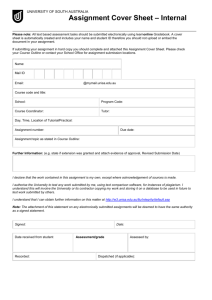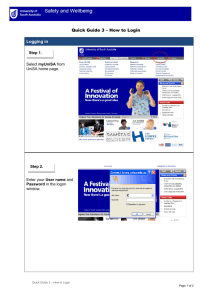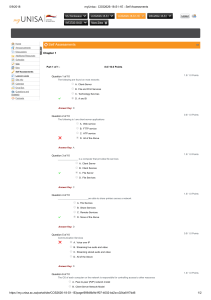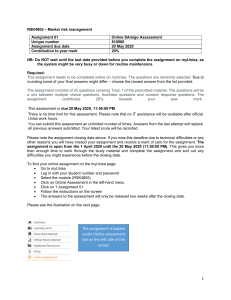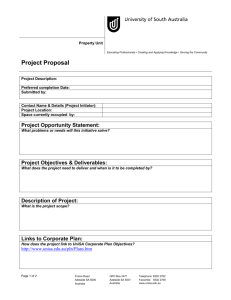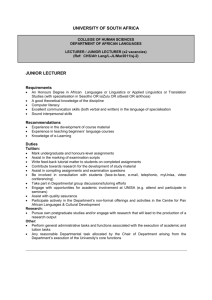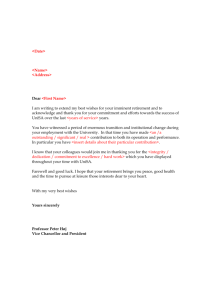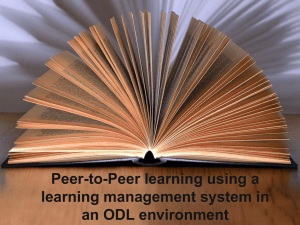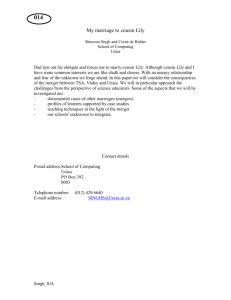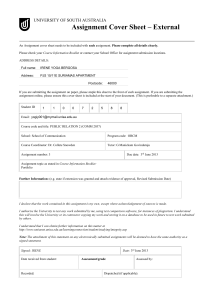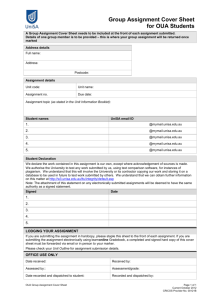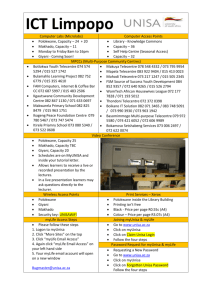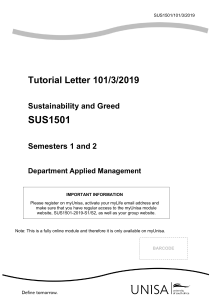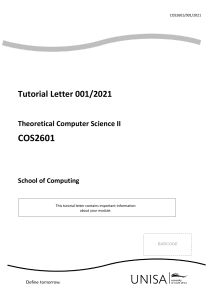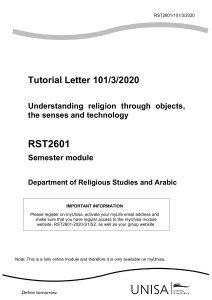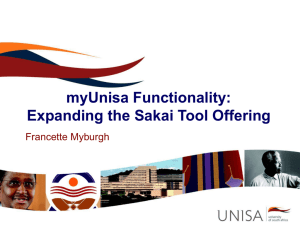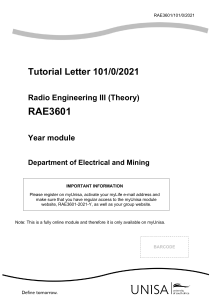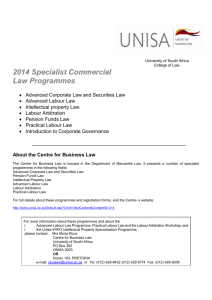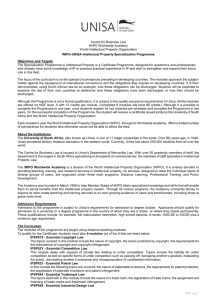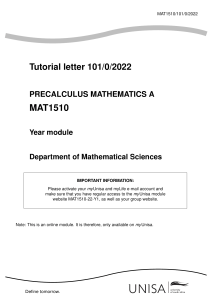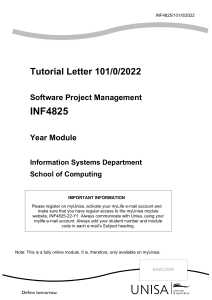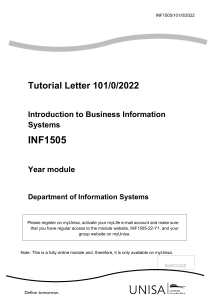Secret Life of University
advertisement
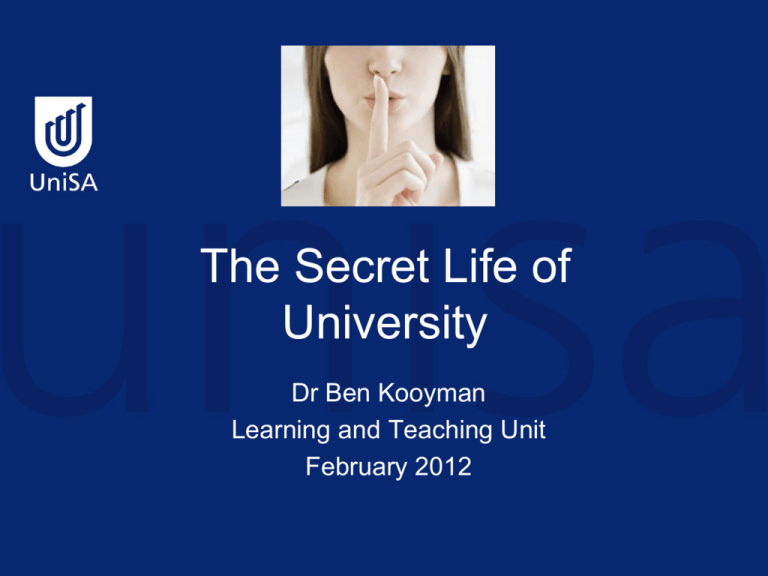
. The Secret Life of University Dr Ben Kooyman Learning and Teaching Unit February 2012 How do we learn at university? • Reading – set reading and independent • Participating – lectures and tutorials • Writing – for assessment Reading Set reading (weekly reading that has been assigned by your course coordinators) Independent reading (research for assignments etc; use set reading as a guideline for the type, quality, and standard of research required) Participation: lectures & tutorials • Large venues • Lecturer-centred • Not interactive • Small venues • Student-centred • Interactive What happens in tutorials? Tutorial groups usually: • discuss readings, lecture notes and set questions • discuss a topic’s key concepts and ideas • work together to make sense of new and unfamiliar material • share a range of views on a topic • debate and contest different points of view Tutorial activities can include... • Working independently or in groups • Completing short quizzes • Giving oral presentations • Performing practical exercises or experiments Your tutor expects you to... • have read and understood the material • contribute to discussion by sharing your opinions and ideas with the class • raise questions about anything you do not understand • respect the thoughts and opinions of others • participate in set activities and exercises Writing • Preparation for professional practice – Written communication skills – Workplace documents: reports, proposals – Information gathering, collating, synthesis, citation • Assessment process – Continual assessment – Consistent pattern of assessment • Average of 2 or 3 major assignments/ assessment tasks per topic – Week 4-5 – Week 7-8 – End of study period (and/or exam) • Each course has a Course Outline with course aims, objectives, timetables etc that can be found online • Assessment information – Assignment questions & formats – Due dates – Word counts & percentages of course grade – Marking criteria Assignment formats • • • • • • • Essays Reports Case studies Research projects Seminar papers Oral presentations Reflective journals • Exams, tests, and quizzes • Annotated bibliographies • Literature reviews • Online discussions • You can find guidelines for different types of assignments here: http://www.unisa.edu.au/l3 • Referencing is also very important Support services • Learning and Teaching Unit • Campus Central Learning and Teaching Unit (LTU) • Language and Learning advice • Counselling services • Careers and employment advice • Services for students with disabilities, mental health or medical issues • International student services Campus Central • One-stop shop for enquiries about • Enrolment and admissions • Contacts and procedures • Access to UniSA services & facilities (e.g. IT) • ID cards • Orientation activities • Fees and payments • General enquiries Online environment • • • • myUniSA Email Library Learnonline myUniSA • myUniSA is a personalised student portal for study-related information and resources. Its URL is http://www.unisa.edu.au/myunisa/ • It can also be accessed from the top right corner of the university’s homepage Email • Your need to use your UniSA email account, which is accessible via myUniSA • Email is one of UniSA’s main methods of communication, so check your inbox regularly • You have a limited amount of space in your email account (10GB), so remember to – Delete unwanted messages from your inbox and sent items – Regularly empty your deleted items – Save attached files to USB Library • The library offers a range of online resources, including – – – – – – – library catalogue ebooks, ejournals, ereaders databases newspapers referencing tools, e.g. EndNote, RefWorks research papers, conference proceedings, theses online training and assignment help Learnonline • All courses at UniSA College have a learnonline component (accessible via myUniSA) • On a course’s learnonline site you will find – – – – – Course Outline and other information Weekly readings and resources Lecture recordings (slides, audio) Discussion forums Assignment submission (via Gradebook) link Computers on campus • Computers are available to use on each campus. Find out which computers are free via http://www.unisa.edu.au/ists • Facilities are also available for students with disabilities. Find out more from Disability Services at the LTU Wireless on campus • You can read instructions for connecting to eduroam online • iPhone, iPad and iPod users can find instructions online IT support • If you have problems • • • • Navigating the online environment Using email or submitting assignments online Connecting your laptop or i device to eduroam Using a computer in a computer pool or barn contact IT helpdesk on 830 25000
